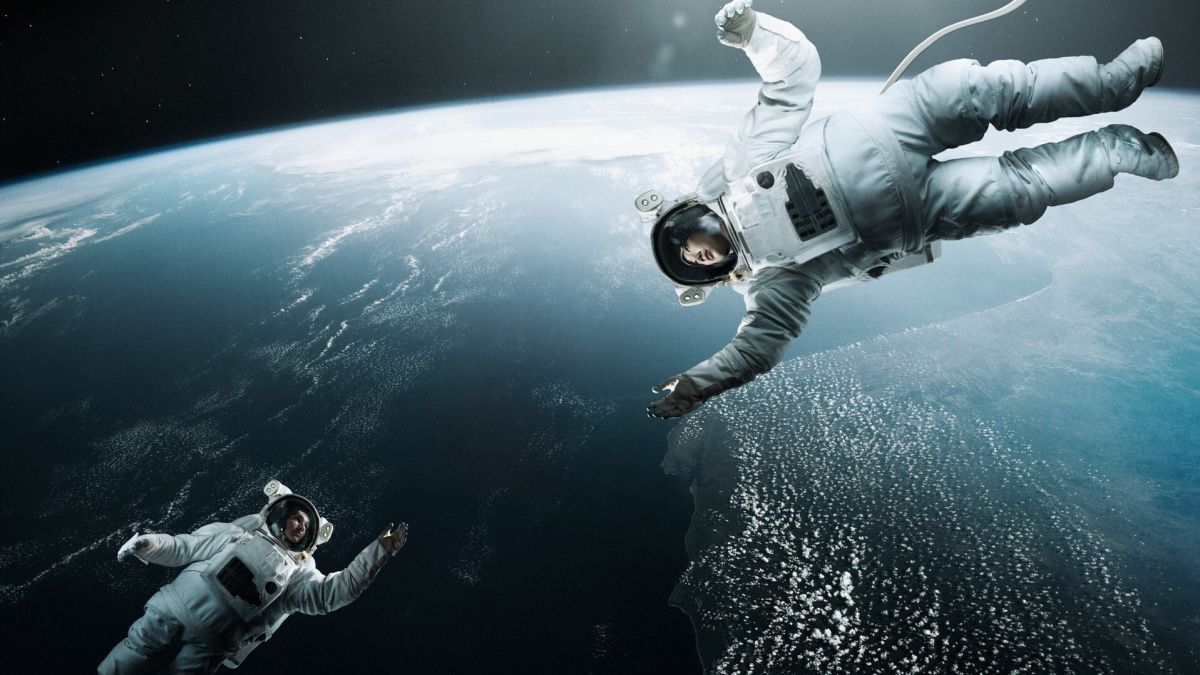Imagine you’re an astronaut exploring the vast expanses of space and — uh oh! — you’re accidentally thrown out of your spacecraft’s airlock. What would happen to your body if it were exposed to the vacuum of space if you weren’t wearing a spacesuit?
The first thing to note is that many Hollywood depictions of this scenario are overblown. They show people, unprotected by helmets or spacesuits, exploding or instantly freezing to death. In reality, the effects would be the same, but less exaggerated.
An astronaut floating without a suit in space wouldn’t survive, but their demise would happen within minutes, not within seconds, and it would be a gnarly exit, with boiling bodily fluids and a nearly frozen nose and mouth.
Related: Why is space a vacuum?
Space is a vacuum devoid of air — meaning that, unlike on Earth, there’s no atmosphere and no pressure exerted by air molecules. Atmospheric pressure determines the temperatures at which liquids boil and turn gaseous. If the pressure exerted by the air outside a liquid is high, as it is at sea level on Earth, it’s harder for bubbles of gas to form, rise to the surface and escape. But because there is virtually no atmospheric pressure in space, the boiling point of liquids decreases significantly.
“As you can imagine, given that 60% of the human body is made up of water, this is a serious problem,” Dr. Kris Lehnhardt, a NASA operational space medicine physician, told Live Science. In the absence of pressure, liquid water in our bodies would boil — changing immediately from a liquid to a gas. “In essence, all of your body tissues that contain water will start to expand,” he said.
Some humans have actually been exposed to near-vacuums and survived to tell the tale. In 1966, an aerospace engineer at NASA, Jim LeBlanc, was helping to test the performance of spacesuit prototypes in a massive vacuum chamber. At some point in the test, the hose feeding pressurized air into his suit was disconnected. “As I stumbled backwards, I could feel the saliva on my tongue starting to bubble just before I went unconscious, and that’s kind of the last thing I remember,” he recalled in the 2008 “Moon Machines” documentary series episode “The Space Suit.”
The formation of gas bubbles in bodily fluids, known as an ebullism, also occurs in deep-water scuba divers who surface too quickly because they go from an underwater environment of high pressure to low pressure at the water’s surface. For suit-less astronauts, the blood flowing through the veins boils less quickly than water in the tissues because the circulatory system has its own internal pressure, but massive ebullism in the body’s tissues would result rapidly. A 2013 review in the journal Aerospace Medicine and Human Performance that looked at previous exposures to vacuums in animals and humans found that they lost consciousness within 10 seconds. Some of them then lost control of their bladders and bowel systems, and the swelling in their muscles constricted blood flow to their hearts and brains, as their expanded muscles acted as a vapor lock.
“No human can survive this — death is likely in less than two minutes,” Lehnhardt said.
According to NASA’s bioastronautics data book, the vacuum of space would also pull air out of your lungs, causing you to suffocate within minutes. After an initial rush of air surged out, the vacuum would continue to pull gas and water vapor from your body through your airways. The continuous boiling of water would also produce a cooling effect — the evaporation of water molecules would absorb heat energy from your body and would cause the parts near your nose and mouth to nearly freeze. The remainder of your body would also cool, but it would do so more slowly because not as much evaporation would take place.
As astrophysicist Paul Sutter told Forbes, temperature is a measure of how much energy atoms and molecules have to move about — and because space is almost empty, there’s not much to move at all, making it “cold.” This also means that there isn’t matter in space to transfer heat to. However, a person could freeze from the evaporation of their body’s water and the slow loss of heat via the radiation emanating from their body.
The lesson from all of this? Always wear a spacesuit.
Originally published on Live Science.





